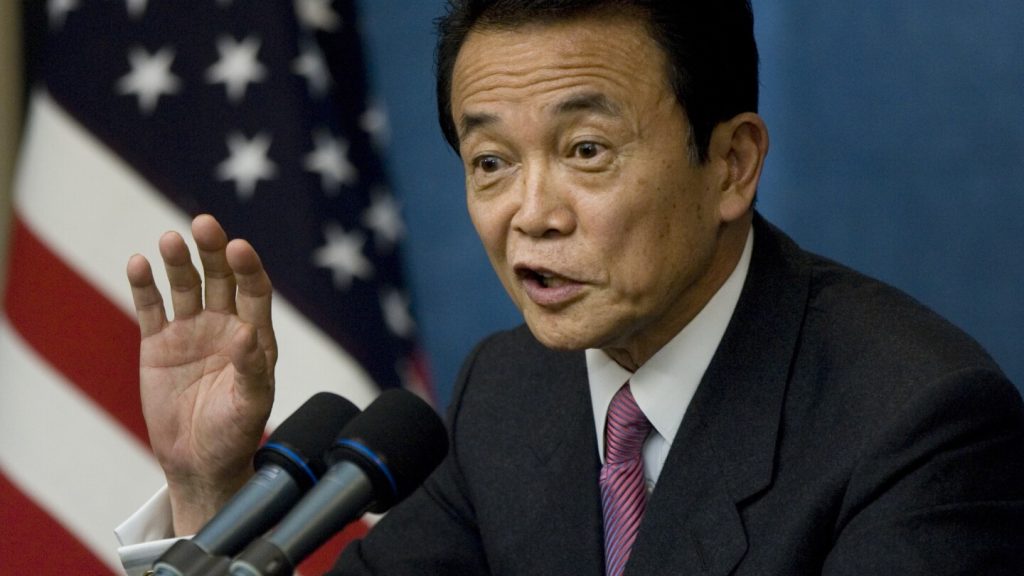Former President Donald Trump is meeting with former Japanese Prime Minister Taro Aso in New York amidst his ongoing criminal hush money trial. This meeting is part of a series of recent interactions Trump has had with foreign leaders, including Polish President Andrzej Duda, British Foreign Secretary David Cameron, and Hungarian Prime Minister Viktor Orbán. Trump’s team emphasized the importance of these meetings in highlighting the perceived strengths of his presidency in terms of global security and prosperity, contrasting it with what they see as weaknesses in the current administration led by President Joe Biden.
The relationship between Trump and the late Shinzo Abe, the former Japanese prime minister, is highlighted as a significant influence on his connection with Aso. Aso, who is currently the vice president of the Japanese Liberal Democratic Party and served in key positions under Abe, is seen as a continuation of the diplomatic ties that Trump established during his presidency. Trump’s stance on imposing new tariffs if he wins a second term is also noted, with recent comments on the U.S. dollar’s exchange rate against the Japanese yen indicating a potential shift in trade policies under his leadership.
The fluctuation in the U.S. dollar’s value against the Japanese yen has been a point of contention for Trump, who criticized the recent record-high exchange rate. He expressed concerns about the negative impact on American manufacturers and the economy, citing his previous efforts to address similar issues during his time in office. This focus on trade dynamics between the U.S. and Japan reflects broader economic concerns and the potential implications for global trade relationships under different leadership.
In contrast, President Joe Biden recently met with Japanese Prime Minister Fumio Kishida at the White House, where discussions centered on strengthening military cooperation between the two countries. The backdrop of regional security challenges, including North Korea’s nuclear program and China’s military assertiveness in the Pacific, underscores the strategic importance of U.S.-Japan relations. Both leaders affirmed their commitment to enhancing defense ties and mutual security interests, reflecting ongoing efforts to navigate complex geopolitical realities in the region.
The timing of Trump’s meeting with Aso, amid his legal troubles and political aspirations for a potential return to the White House, adds a layer of intrigue to the diplomatic engagements. As Trump positions himself as a contender for the 2024 presidential election, these interactions with foreign leaders serve as a platform to showcase his vision for U.S. foreign policy and economic priorities. The ongoing dialogue between former and current leaders highlights the evolving dynamics of international diplomacy and the enduring influence of personal connections in shaping global partnerships.
Overall, Trump’s meeting with Aso represents a continuation of his engagement with key international figures, reflecting broader trends in global politics and the complexities of U.S. foreign relations. As the political landscape evolves and potential shifts in leadership loom, these interactions offer insights into the competing visions for America’s role on the world stage. The implications of these meetings extend beyond individual personalities to encompass strategic interests, economic considerations, and the future direction of U.S. foreign policy in an increasingly interconnected world.


